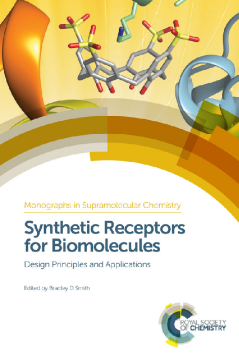
Additional Information
Book Details
Abstract
Synthetic receptor molecules, molecules that mimic antibody recognition, are widely used for developing drug leads; drug delivery vehicles; imaging agents; sensing agents; capture agents and separation systems. Synthetic Receptors for Biomolecules covers the most effective synthetic receptors for each major class of biomolecules within the context of specific applications.
The book starts with an introduction to the applications of synthetic receptors for biomolecules and their design and synthesis for biomolecule recognition. Dedicated chapters then cover synthetic receptors for the key biomolecules including inorganic cations; small organic and inorganic anions; carbohydrates; nucleosides/nucleotides; oligonucleotides; amino acids and peptides; protein surfaces as well as non-polar and polar lipids; Each chapter follows the same systematic format of (a) chemical structures and physical properties of the biomolecule, (b) biological recognition of the biomolecule, (c) synthetic receptors for the biomolecule, (d) future directions and challenges.
Edited by a leader in the field, the book is written in an accessible style for readers new to supramolecular chemistry or for those looking for synthetic receptors.
Professor Smith is the Emil T. Hofman Professor of Chemistry and Biochemistry and Director of the Notre Dame Integrated Imaging Facility. As an independent investigator he has published 195 papers over the last 22 years in the fields of bioorganic and supramolecular chemistry.
